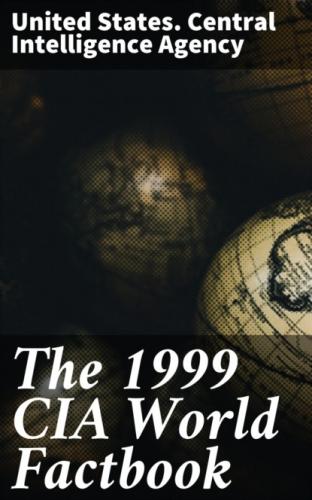Population growth rate: 2.38% (1999 est.)
Birth rate: 24.69 births/1,000 population (1999 est.)
Death rate: 5.21 deaths/1,000 population (1999 est.)
Net migration rate: 4.35 migrant(s)/1,000 population (1999 est.)
Sex ratio:
at birth: 1.06 male(s)/female
under 15 years: 1.05 male(s)/female
15–64 years: 1.11 male(s)/female
65 years and over: 1.19 male(s)/female
total population: 1.09 male(s)/female (1999 est.)
Infant mortality rate: 22.83 deaths/1,000 live births (1999 est.)
Life expectancy at birth: total population: 71.84 years male: 70.35 years female: 73.42 years (1999 est.)
Total fertility rate: 3.33 children born/woman (1999 est.)
Nationality: noun: Bruneian(s) adjective: Bruneian
Ethnic groups: Malay 64%, Chinese 20%, other 16%
Religions: Muslim (official) 63%, Buddhism 14%, Christian 8%, indigenous beliefs and other 15% (1981)
Languages: Malay (official), English, Chinese
Literacy:
definition: age 15 and over can read and write
total population: 88.2%
male: 92.6%
female: 83.4% (1995 est.)
Government
Country name:
conventional long form: Negara Brunei Darussalam
conventional short form: Brunei
Data code: BX
Government type: constitutional sultanate
Capital: Bandar Seri Begawan
Administrative divisions: 4 districts (daerah-daerah, singular—daerah); Belait, Brunei and Muara, Temburong, Tutong
Independence: 1 January 1984 (from UK)
National holiday: National Day, 23 February (1984)
Constitution: 29 September 1959 (some provisions suspended under a State of Emergency since December 1962, others since independence on 1 January 1984)
Legal system: based on English common law; for Muslims, Islamic
Shari'a law supersedes civil law in a number of areas
Suffrage: none
Executive branch:
chief of state: Sultan and Prime Minister His Majesty Paduka Seri
Baginda Sultan Haji HASSANAL Bolkiah Mu'izzaddin Waddaulah (since 5
October 1967); note—the monarch is both the chief of state and head
of government
head of government: Sultan and Prime Minister His Majesty Paduka
Seri Baginda Sultan Haji HASSANAL Bolkiah Mu'izzaddin Waddaulah
(since 5 October 1967); note—the monarch is both the chief of state
and head of government
cabinet: Council of Cabinet Ministers appointed and presided over by
the monarch; deals with executive matters
note: there is also a Religious Council (members appointed by the
monarch) that advises on religious matters, a Privy Council (members
appointed by the monarch) that deals with constitutional matters,
and the Council of Succession (members appointed by the monarch)
that determines the succession to the throne if the need arises
elections: none; the monarch is hereditary
Legislative branch: unicameral Legislative Council or Majlis Masyuarat Megeri (a privy council that serves only in a consultative capacity; NA seats; members appointed by the monarch) elections: last held in March 1962 note: in 1970 the Council was changed to an appointive body by decree of the monarch; an elected Legislative Council is being considered as part of constitutional reform, but elections are unlikely for several years
Judicial branch: Supreme Court, chief justice and judges are sworn in by the monarch for three-year terms
Political parties and leaders: Brunei Solidarity National Party
president]; the PPKB is the only legal political party in Brunei; it
was registered in 1985, but became largely inactive after 1988; it
has less than 200 registered party members; other parties include
Brunei People's Party or PRB (banned in 1962) and Brunei National
Democratic Party (registered in May 1985, deregistered by the Brunei
Government in 1988)
International organization participation: APEC, ASEAN, C, CCC,
ESCAP, G-77, IBRD, ICAO, ICRM, IDB, IFRCS, IMF, IMO, Inmarsat,
Intelsat, Interpol, IOC, ISO (correspondent), ITU, NAM, OIC, OPCW,
UN, UNCTAD, UPU, WHO, WIPO, WMO, WTrO
Diplomatic representation in the US:
chief of mission: Ambassador Pengiran Anak Dato Haji PUTEH Ibni
Mohammad Alam
chancery: Watergate, Suite 300, 3rd floor, 2600 Virginia Avenue NW,
Washington, DC 20037
Diplomatic representation from the US:
chief of mission: Ambassador Glen Robert RASE
embassy: Third Floor, Teck Guan Plaza, Jalan Sultan, Bandar Seri
Begawan
mailing address: PSC 470 (BSB), FPO AP 96534–0001
Flag description: yellow with two diagonal bands of white (top,
almost double width) and black starting from the upper hoist side;
the national emblem in red is superimposed at the center; the emblem
includes a swallow-tailed flag on top of a winged column within an
upturned crescent above a scroll and flanked by two upraised hands
Economy
Economy—overview: This small, wealthy economy is a mixture of foreign and domestic entrepreneurship, government regulation and welfare measures, and village tradition. It is almost totally supported by exports of crude oil and natural gas, with revenues from the petroleum sector accounting for over half of GDP. Per capita GDP is far above most other Third World countries, and substantial income from overseas investment supplements income from domestic production. The government provides for all medical services and subsidizes food and housing. The government is beginning to show progress on its basic policy of diversifying the economy away from oil and gas. Brunei's leaders are concerned that steadily increased integration in the world economy will undermine internal social cohesion. Because of low world oil prices and the Asian crisis, growth in 1999 is expected to be moderate.
GDP: purchasing power parity—$5.4 billion (1998 est.)
GDP—real growth rate: −1% (1998 est.)
GDP—per capita: purchasing power parity?$17,000 (1998 est.)
GDP—composition by sector: agriculture: 5% industry: 46% services: 49% (1996 est.)
Population below poverty line: NA%
Household income or consumption by percentage share:
lowest 10%: NA%
